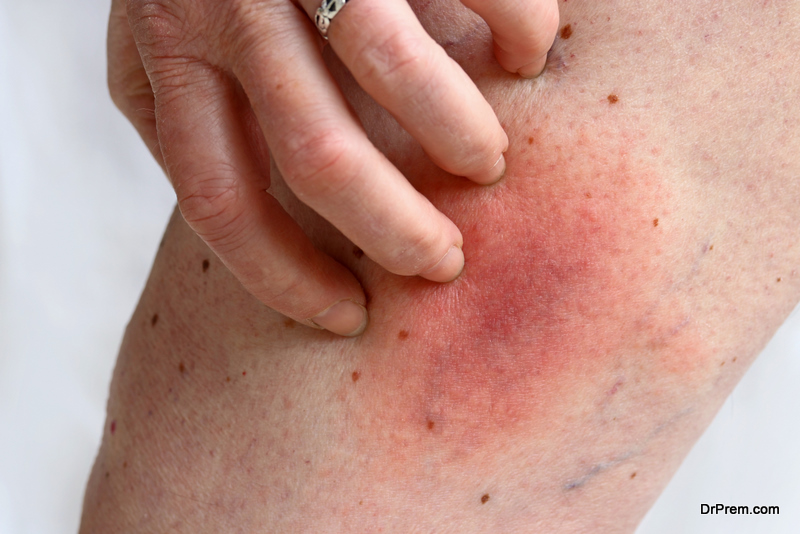Cold Sores: Diagnosis
Top Diagnosis
1. Viral culture
Viral cultures are very specific tests that are designed to detect the presence of a specific virus in the body. These are direct swabs of the cold sores. A few patients may have oral sores while others may have genital lesions. The lesion is usually swabbed with a cotton swab and the liquid is then cultured on a special growth medium. However, this test often shows false-negative results as it is not sensitive enough to find the virus. If the test, turns out to be a negative, then patients are usually called back for repeat tests when new lesions appear.
2. Western blot blood tests
This is one of the best tests that is carried out to detect the presence of the HSV virus. Blood is drawn from a vein and is prepared for the test. It is a very complicated process but the test is highly specific. Tissue samples can also be used for the test but the tissues have to be prepared. Sample preparation itself can take about a week as the test requires a specifically prepared tissue or blood sample. The test is more than 99% accurate. The test takes about 13 to 20 days to show a result and it can be expensive.
3. POCkit
Not many people have heard of the POCkit but it has been approved by the FDA for HSV detection. The POCkit test is specifically done to detect the presence of HSV type 2. The test is highly specific to the HSV virus and it can be carried out with a blood sample drawn with a pin prick. The test detects antibodies in blood and it shows results in just five minutes. These tests are usually done to get rapid results. However, if the test shows a negative result and you still experience cold sores; take a Western Blot test to confirm the results.
4. Antigen detection test
This test can be done to detect the presence of HSV but it’s not very common. This test is very similar to the culture method but with a few differences. The major difference is that the virus is not grown on a culture medium in the laboratory. The test tries to determine the presence of HSV antigens in blood by a process known as antigen detection assays. This process is faster than the culture process but large samples are necessary to produce the desired result. These tests can be done as screening tests but they have to be followed up with more specific tests. ELISA or Western Blot are recommended for best results.
5. HerpeSelect 1 and 2 Immunoblot IgG
These special tests are designed to detect the presence of human IgG class antibodies that are manufactured by the body to ward off HSV1 and HSV2 infections. This immunoglobulin is usually found in human sera. The process of isolating sera and purifying it can take a lot of time. However, the test is completely dependent on well prepared samples. The company that produces these tests also produces limited quantities of these tests and they are difficult to find. As a result, the test takes anywhere from one week to ten days to show a result but it is highly specific and does produce accurate results.
6. NON-Glycoprotein G ELISA
Enzyme linked immunosorbent assays are extremely reliable and well known tests. This test is one of the oldest methods used to detect the presence of HSV. However, it detects any viral content that is present in a serum sample and not specifically related to a single virus. Moreover, the problem with this test is that it does not differentiate between HSV1 and HSV2 viral infections which is very necessary to provide treatment and management. This test is still very accurate and highly specific for HSV and doctors might use it as a screening test for affected patients. Repeat tests with Western Blot are indicated in case of doubt.
7. Glycoprotein G ELISA
This test is based on the herpes simplex virus 2’s (HSV2) glycoprotein G. The test can detect the smallest amount of HSV2 and is considered to be one of the best tests with 90% accuracy rate. Please note that these routine screening for HSV tests are not done for all HSV suspected patients. The test is expensive and difficult to find at routine laboratories. You have to ask for these tests and have a doctor’s prescription before the test can be done. This is particularly true for ELISA tests which are expensive. Most doctors will prefer to just test the patient with ELISA before trying any screening tests.
8. PCR
Out of all the tests done to detect HSV, PCR or polymerase chain reactions are the best. This test is specially geared to detect minute quantities of viral DNA or RNA. DNA and RNA are essential components of the HSV virus and are found in appreciable amounts in blood and infected blisters. Even the tiniest amounts of viral DNA in blood can be detected by this test. The samples that can be used with the test include blood samples, fluids from infected sores, infected spinal fluids, or tissues cells. This remarkable flexibility also means that the test is almost 99% positive.
9. Tzanck tests
An estimated 1.6 million new cases of HSV are detected all over the world. most of these tests can be expensive. As a result, non specific tests like Tzanck tests can also be done to test for the presence of nonspecific human DNA changes due to HSV. This test is cheap and it may be used for large groups of patients to expedite results. However, non-specific tests like these are not used for diagnostic purposes and doctors will always recommend the use of PCR, Western Blot and ELISA. If you feel that you could have oral or genital herpes, ask your doctor for these tests immediately.


